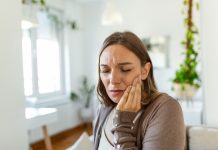
Muscle strength is a powerful predictor of mortality that can quickly and inexpensively be assessed by measuring handgrip strength.
In a study from the University of Vienna, scientists developed cut-off points that apply to the general population, while also considering the correlation of handgrip strength with gender, body height, and aging to be used in medical practice.
They examined at what level of handgrip strength a doctor should consider sending a patient for further examination.
The results of the study provide standardized thresholds that directly link handgrip strength to remaining life expectancy, thus enabling practitioners to detect patients with an increased mortality risk early on.
Handgrip strength is measured by squeezing a dynamometer with one hand.
In the study, the patient is asked to perform two attempts with each hand, the best trial being used for measurement.
There is a special protocol for this process as the values may depend on whether the test was performed in a standing or a sitting position, among other considerations.
The authors compared individuals’ handgrip strength not with a healthy reference population, but with individuals who are comparable in terms of sex, age, and body height.
The findings indicate an increase in mortality risk at a threshold that is more sensitive compared to that estimated in earlier studies.
In fact, the results show that a handgrip strength that is only slightly below the average of a comparable population (considering a person’s sex, age, and body height) is indicative of health conditions leading to an earlier death.
A stronger handgrip compared to other people of the same age, sex, and body height was not found to reduce the death risk.
The team says that handgrip strength is a cheap and easy-to-perform test, but it may help with early diagnosis of health problems and other underlying health conditions.
Monitoring the handgrip strength of the elderly (and in fact middle-aged people) may provide great benefits for the public health of aging populations.
The findings make it clear that handgrip strength is a very precise and sensitive measure of underlying health conditions. Therefore, researchers suggest it be used as a screening tool in medical practice.
If you care about wellness, please read studies that plant-based diets can harm your bone health without some nutrients, and eating prunes may help prevent bone loss.
For more information about wellness, please see recent studies that too much of this vitamin may increase your risk of bone fractures, and results show this type of exercise may protect your bone health, and slow down bone aging.
The study was conducted by Sergei Scherbov et al and published in the journal BMJ Open.
Copyright © 2022 Knowridge Science Report. All rights reserved.



